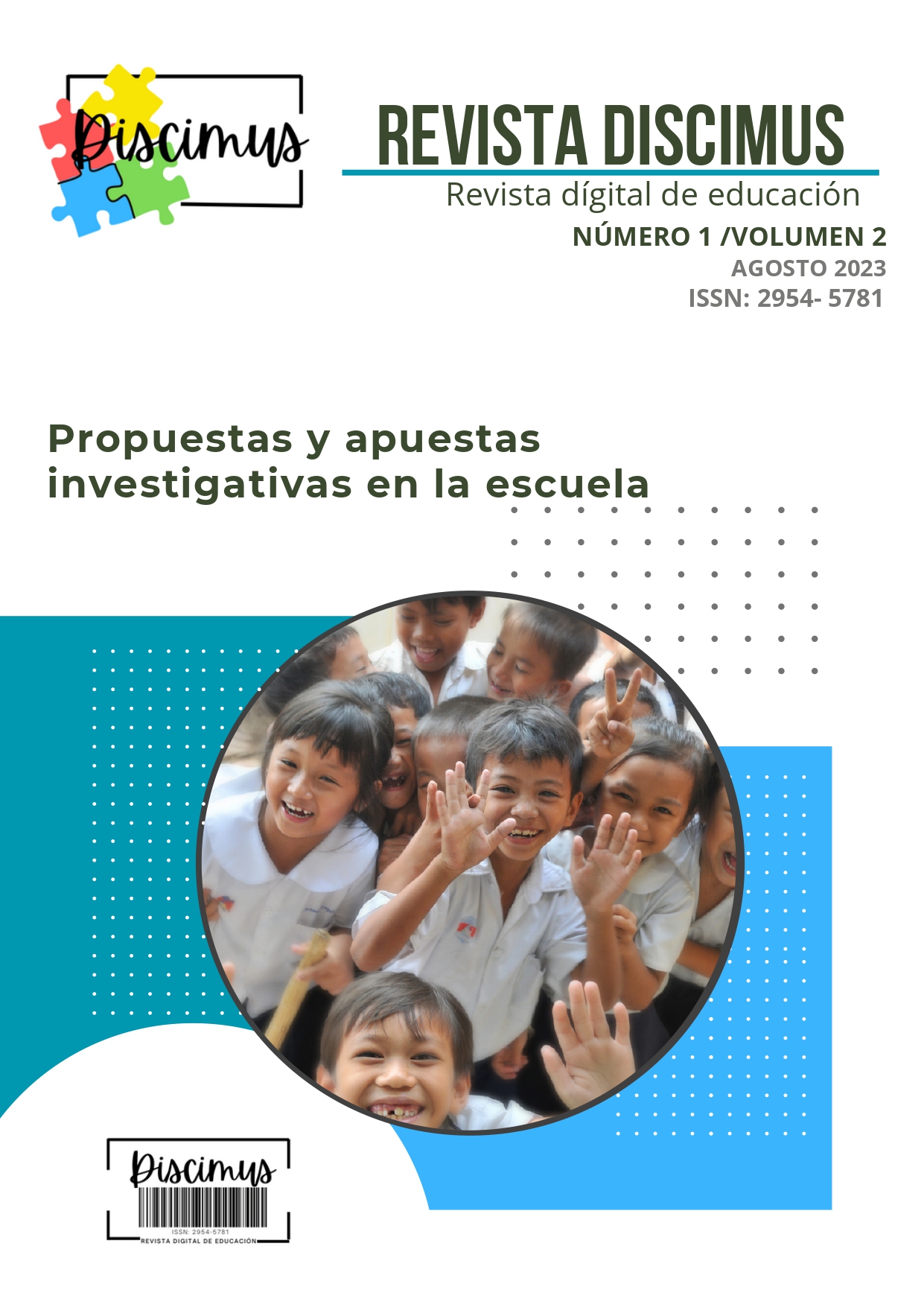Ideology on political participation of grade 11 students of paulo freire district school
DOI:
https://doi.org/10.61447/20220601/UMPv21004Keywords:
Participation, politics, student participation, democracyAbstract
The main purpose of this research article is to investigate the political ideology of the eleventh grade youth of the Paulo Freire district school, in the city of Bogotá. The present study used the qualitative methodology, since it allows collecting the perceptions and interpretations of the students. The instrument applied to carry out the data collection was the survey, which allowed collecting the necessary information that makes it possible to understand the ideas and conceptions that students have about political participation. The result of the investigation favored the understanding of how in various classes a democratic thought is created and promoted that allows students to think and give their opinion in a critical and authentic way regarding political and social issues, on the other hand, it was possible to know the tastes and alternative political scenarios of the students; In the same way, a distaste was evidenced in the students for exercising and belonging to the participatory scenarios arranged by the institution, this is due to the underestimation of adults and in part to the traditional politics of the country.
Downloads
References
Achoy, J. (2017). Desbalance adultocentrista en política y derecho. Anuario CIEP. (8), 65 75. https://revistas.ucr.ac.cr/index.php/ciep/article/view/34317
Acosta, G. y Garcés, A. (2010). Ámbitos y escenarios de participación política y juvenil en Medellín. Anagramas, 8(16), 15-31. http://hdl.handle.net/11407/518
Amador-Baquiro, J. y Muñoz-González, G. (2021). Del alteractivismo al estallido social: acción juvenil colectiva y conectiva (2011 y 2019). Revista latinoamericana de ciencias sociales niñez y juventud, 19(1), 3-28. https://doi.org/10.11600/rlcsnj.19.1.4588
Benedicto, J. (2008). La juventud frente a la política: ¿desenganchada, escéptica, alternativa o las tres cosas a la vez? Revista de Estudios de Juventud. 81, 13-29. http://www.injuve.es/sites/default/files/documentos-1.pdf
Casas, J., Repullo, J. y Donado, J. (2003). La encuesta como técnica de investigación. Elaboración de cuestionarios y tratamiento estadístico de los datos (I). Aten Primaria, 31(8), 527-538. https://doi.org/10.1016/S0212-6567(03)70728-8
Castillo, E. y Sánchez, C. (2003) ¿Democratizar la escuela o escolarizar la democracia? Dilemas en la socialización política en la escuela colombiana. Revista Colombiana de Educación, (45). https://doi.org/10.17227/01203916.5494
Colome, G. (1994). Política y medios de comunicación: una aproximación teórica (91). Barcelona: Universidad Autónoma de Barcelona. https://www.icps.cat/archivos/WorkingPapers/WP_I_91.pdf?noga=1
Hernández-Sampieri, R., Collado, C. y Baptista, M. (2014). Metodología de la Investigación (6ta ed.). Mc Graw-Hill Education.
Hinojosa, G. (2008). El tratamiento estadístico de las redes semánticas naturales. Revista Internacional de Ciencias Sociales y Humanidades, (18)1, 133-154. https://biblat.unam.mx/en/revista/sociotam-revista-internacional-de-ciencias-sociales-y-humanidades/articulo/el-tratamiento-estadistico-de-las-redes-semanticas-naturales
Lewin, L. (12 de junio, 2022). ¿Por qué muchos alumnos no aprenden? Ecos diarios. https://elecos.com.ar/por-que-muchos-alumnos-no-aprenden/
Michala, C. (2017, del 20 al 22 de abril). Juventud-es, adultocentrismo y educación: Hacia un nuevo territorio socioeducativo. III Congreso Internacional de Ciencias Pedagógicas, Quito, Ecuador. https://dialnet.unirioja.es/servlet/articulo?codigo=7210610
Patti, P. (2018, del 23 al 24 de mayo). El debate como metodología de enseñanza-aprendizaje. VIII Encuentro de Docentes e Investigadores en Historia del Diseño, la Arquitectura y la Ciudad. Córdoba, Argentina http://hdl.handle.net/11086/11593
Sierra, R. (1994). Técnicas de investigación social Teoría y ejercicios (9na ed.). Paraninfo. https://www.scribd.com/doc/53545006/Tecnicas-de-Investigacion-Social-bravo
Vargas-Garduño, M., Méndez, A. y Vargas, A. (2014, del 27 al 29 de agosto). La técnica de las redes semánticas naturales modificadas y su utilidad en la investigación cualitativa. IV Encuentro Latinoamericano de Metodología de las Ciencias Sociales (ELMECS). Heredia, Ecuador. http://sedici.unlp.edu.ar/handle/10915/108144
Villa, J. y Barrientos, M. (2007). La construcción de la democracia escolar [Trabajo de pregrado, Universidad de Antioquia]. Repositorio Institucional UdeA. https://hdl.handle.net/10495/22074

Downloads
Additional Files
Published
Versions
- 2024-03-06 (4)
- 2023-08-13 (3)
Issue
Section
License
Copyright (c) 2023 Mahecha Montañez Andrea Marcela , Luis Reyes Juan Manuel (Autor/a)

This work is licensed under a Creative Commons Attribution-NonCommercial-ShareAlike 4.0 International License.
Open Access Policy at Discimus Journal
Discimus Journal is committed to the promotion of free circulation of scientific and academic knowledge, simultaneously ensuring appropriate acknowledgment for our authors while adhering to the ethical principles of scientific publishing. In alignment with this goal, Discimus publishes all its articles under the ATTRIBUTION-NONCOMMERCIAL-SHAREALIKE 4.0 INTERNATIONAL CC BY-NC-SA 4.0
What does this imply for authors, readers, and the scientific community?
1. Usage Freedom: Under the license CC BY-NC-SA 4.0, anyone is allowed to share (copy and redistribute the material in any medium or format) and adapt (remix, transform, and build upon the material) the articles published in Discimus, for any purpose, including commercially.
2. Attribution: Users must give appropriate credit, provide a link to the license, and indicate if changes were made to the original work. This credit must include the author's citation, the article title, the publication in Discimus, and, if feasible, the DOI of the article. This attribution should not in any way suggest that the authors or Discimus endorse the use made of the work.
3. Share Alik: If users remix, transform, or build upon the material, they must distribute their contributions under the identical license as the original.









